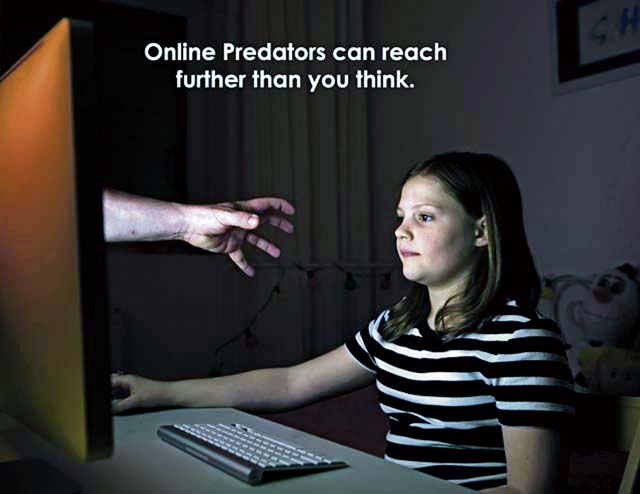
The Internet Crimes Against Children program was developed in response to the increasing number of children and teenagers using the internet and other technology, the proliferation of child sexual abuse images available electronically and the heightened online activity by predators seeking unsupervised contact with potential underage victims.
The Air Force Office of Special Investigations identified individuals who were recently convicted of online exploitation of children during the time frame of December 2014 to February 2015 on Ramstein.
Through the Internet Crimes Against Children program, five military members were convicted of attempting to meet and engage in criminal acts with children under the age of 16. Two military members received Article 15s and two others are still pending trial. ICAC was designed to battle the online activity of predators looking to take advantage of children and teenagers who use the internet and other technology devices.
With the summer months here, children have more free time to browse the internet. It is as important as ever to know what your children are doing while using the computer. AFOSI agents offer helpful tips for parents to be aware of their children’s internet usage.
“Speak to your children about the dangers of online behaviors, such as posting personal information and chatting with strangers,” said Special Agent Adam Frashure, AFOSI 13th Field Investigation Squadron. “Set clear ground rules for your children’s computer usage and place computers in public spaces to allow for monitoring your child’s online activities.”
While many teenagers use social media to contact friends and family, their social media sites should be reviewed by parents, to include looking at the friends list and ensuring there are no strangers or unknown individuals with access to their pages.
Parents should also look for changes in the behavior of their children. These changes can vary from child to child.
“Having open, honest conversations with your children is key to prevention of such crimes,” said Col. Christopher Ouellette, AFOSI 13th FIS commander. “Warning signs can include the child becoming secretive and obsessive about online activities and angry when they are unable to use the internet. They may also receive phone calls and/or gifts from someone you do not know.”
Parents can find resources for protecting their children at the National Center for Missing and Exploited Children’s webpage, www.missingkids.com/home. There are also child therapists available through the Family Advocacy and Medical Group, should that be necessary.
“The internet has undoubtedly provided many advancements and unrivaled convenience in our daily lives,” Frashure said. “Keeping online safety in mind, we can ensure our children’s online experience in this digital age can be a safe and enjoyable one.”
Parents are asked to report all suspected exploitation to the local AFOSI unit as soon as possible in
Bldg. 2401 or via phone at 480-5409 or 06371-47-5409.


